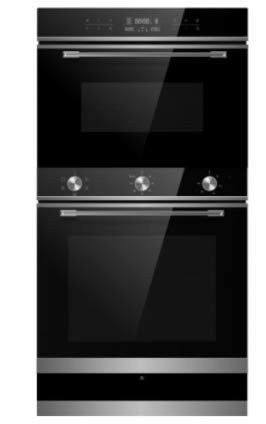What Do You Know About Hob And Oven?

Understanding Cooker Hobs and Ovens: A Comprehensive Guide
In contemporary cooking areas, cooker hobs and ovens are fundamental home appliances that define cooking routines and choices. Choosing the ideal mix of these gadgets can substantially enhance culinary experience, improve efficiency, and even raise home visual appeals. This short article will explore different aspects of cooker hobs and ovens, clarifying types, features, advantages, and maintenance suggestions, while also addressing common inquiries.
Types of Cooker Hobs
Cooker hobs can be found in different types, each with unique functions dealing with various cooking styles. Here's an introduction of the most typical types:
| Type | Description | Pros | Cons |
|---|---|---|---|
| Gas Hob | Uses gas burners for heating; offers instant temperature level control. | Instant heat and excellent control. | Needs a gas connection; may be less safe. |
| Electric Hob | Runs using electric coils or smooth surface area; warms up gradually. | Even heat distribution; simple to clean. | Takes longer to warm up; less control. |
| Induction Hob | Utilizes magnetic fields to heat pots straight, making it energy efficient. | Fast cooking; energy-efficient. | Needs compatible cookware; more expensive. |
| Halogen Hob | Utilizes halogen bulbs for immediate heat; offers instant temperature level modification. | Incredibly quickly heating; visible heat. | Consumes more power; may not equally heat. |
Choosing the Right Hob
When choosing a hob, consider the following elements:
- Cooking Style: Do you choose the accuracy of gas, the convenience of electric, or the performance of induction?
- Pots and pans Compatibility: Ensure your pots and pans are suitable with the type of hob.
- Kitchen Layout: Space and style often dictate the sort of hob that fits your kitchen.
Types of Ovens
Similarly, ovens have evolved considerably, providing numerous cooking methods that can complement particular culinary designs. Here are the prevalent types of ovens:
| Type | Description | Pros | Cons |
|---|---|---|---|
| Traditional Oven | Conventional baking oven that uses electric or gas heat from the top and bottom. | Versatile; helpful for baking. | Longer preheat and cooking times. |
| Stove | Uses a fan to flow hot air, enabling even cooking and faster baking times. Distributes heat uniformly. | Faster cooking; even browning. | A little more costly; may dry food out. |
| Steam Oven | Cooks food utilizing steam, maintaining nutrients and moisture. | Healthier cooking; retains food taste. | Takes longer to cook; more expensive. |
| Microwave Oven | Uses electromagnetic radiation to heat food rapidly. | Instant cooking; ideal for reheating. | Minimal cooking methods; might impact texture. |
Choosing the Perfect Oven
When picking an oven, keep these consider mind:
- Cooking Habits: Are you a frequent baker or most likely to reheat leftovers?
- Space Requirements: What are the measurements of your kitchen?
- Budget plan: Consider not simply the purchase rate however likewise energy efficiency gradually.
The Importance of Cooker Hobs and Ovens in Cooking
The best mix of cooker hob and oven can boost cooking skills, enabling food enthusiasts to experiment and develop a wide variety of meals. Here are a few reasons that these home appliances are vital:
- Efficiency: Modern hobs and ovens included features that optimize cooking times and energy use.
- Versatility: Different cooking techniques (bake, grill, roast, steam, etc) expand the variety of meals one can prepare.
- Visual Appeal: Stylish designs can elevate the total appearance of a kitchen, making it both functional and inviting.
Regularly Asked Questions (FAQs)
1. What upkeep do cooker hobs and ovens need?
- Regular cleansing after use to avoid accumulation.
- Routine checks for gas leakages (for gas hobs).
- Making sure the electrical connections are safe and secure.
2. Can Hobs Sales utilize any cookware on an induction hob?
No, induction hobs require ferrous cookware (i.e., magnetic) to operate. This means stainless-steel and cast iron work, while glass and aluminum pots might not.
3. How do I determine the right size oven for my kitchen?
Procedure your readily available area and consider the volume of cooking you usually perform. Built In Oven On Sale vary in size, and bigger designs usually have additional functions.
4. Are convection ovens better than traditional ovens?
It depends upon individual choice. Stove use faster and more even cooking but might not be perfect for all baking dishes, particularly those requiring specific temperature levels.
5. What is the typical lifespan of a cooking hob and oven?
With proper care, both hobs and ovens can last anywhere from 10 to 20 years, depending upon frequency of usage and upkeep.
Selecting the right cooker hob and oven not just improves the cooking process however can also redefine one's culinary experience. Understanding the various types, their advantages, and maintenance will empower consumers to make informed decisions, guaranteeing that their kitchen is equipped to handle meals from the most basic to the most fancy. Understanding about the abilities of these vital appliances permits culinary creativity and effectiveness, ultimately causing a more enjoyable cooking journey.

